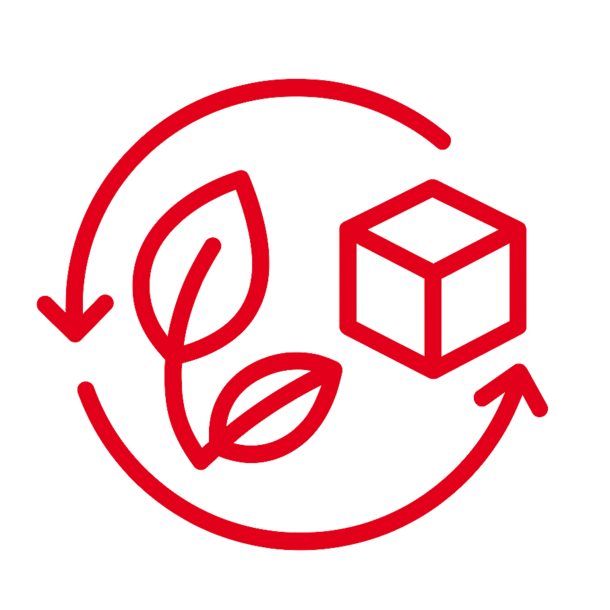Resources & Sustainability - Areas of expertise
Areas of expertise at Bochum University of Applied Sciences in the research focus area Resources & Sustainability.
Sustainable Energy Concepts

Sustainable energy concepts encompass research, development and testing of integrated approaches to the generation, storage, distribution and use of renewable energy systems in the context of the energy transition in urban, regional, industrial and international contexts. For Bochum University of Applied Sciences, this means not only optimising individual technologies such as photovoltaics, wind, battery systems or geothermal energy, but also designing holistic concepts that equally consider efficiency, resource conservation, decarbonisation and access to clean energy – even in less developed regions. The focus of research is on electromobility, hydrogen technologies, sector coupling, intelligent energy systems, energy and load management, storage systems and the integration of decentralised renewable generation into existing grids (on-grid) and self-sufficient systems (off-grid).
In addition, methods for assessing ecological, economic and social impacts are used, e.g., through life-cycle assessments, scenario analyses and acceptance research. Approaches from digitalisation, simulation and modelling enable the flexible testing of new technologies and business models. In this way, Bochum University of Applied Sciences is creating an interdisciplinary research framework to advance the energy transition on a scientific basis, implement sustainable concepts in a practical manner and ensure their transfer to business, society and politics – both nationally and internationally.
Resource-efficient Construction

As an educational institution for young people, Bochum University of Applied Sciences has made a special commitment to sustainability. Accordingly, its degree programmes and research facilities also focus on this topic. The building sector plays a major role here as one of the main contributors to climate change. Sustainable construction and efficient building operation are the key challenges. Teaching and research therefore focus on holistic planning and construction methods that take ecological, economic and social aspects into account throughout the entire life cycle of a building. The aim is to conserve resources in every phase of a building's life, minimise environmental impact and, at the same time, create healthy, durable and economically viable structures. The tools used to achieve this are:
- The development and application of digital planning methods (BIM, LCA, AI).
- Teaching and researching the climate-friendly use of building materials, from CO₂-optimised building materials and renewable materials to recyclability and reuse.
- The ‘human’ operation of buildings with high user comfort, accessibility, low emissions, etc.
- The focus on dismantling, recycling and material efficiency of building components in the interests of future generations.
Mobility Transition

The mobility transition refers to the social, technological, planning and political process of converting transport and mobility to sustainable energy sources, active forms of mobility and the networking of private and public transport. Bochum University of Applied Sciences is actively contributing to this by developing, testing and embedding technological innovations, smart systems, resource-efficient vehicles, electromobility, high-performance charging infrastructure, storage systems and novel business models in integrated mobility concepts.
The focus of research here is on innovative approaches to replacing car traffic, developing and analysing resource-efficient modes of transport, and promoting active mobility.
In addition, sustainability assessment methods are used to systematically record and improve the ecological and social impacts of vehicles, infrastructure and services. Approaches from transport planning, urban development, land use and digitalisation support the integration of technical and organisational innovations into sustainable mobility concepts for urban and regional contexts. In this way, Bochum University of Applied Sciences is creating an interdisciplinary research framework to shape the mobility transition on a scientific basis and ensure its transfer to society, business and politics.
Sustainable Transformation and Circularity

The topic area ‘Sustainable Transformation and Circularity’ combines practical research with active transfer to industry and society. The aim is to develop sustainable systems in which materials, energy and products are used efficiently, reused and kept in cycles. The research takes technological, economic and social dimensions into account in equal measure.
Interdisciplinary approaches from engineering, environmental and economic sciences, and social sciences enable holistic solutions for sustainable production and consumption patterns. Analyses of transformation processes provide insights that not only increase resource efficiency but also incorporate social and economic aspects.
A central aspect is the transfer of research results into practice. Through cooperation with companies, local authorities and civil society partners, concepts are tested and implemented on a scalable basis. Students and researchers work together on projects that make sustainable innovations tangible and contribute to the implementation of the Sustainable Development Goals.
This focus strengthens Bochum University of Applied Sciences as an active shaper of a circular, resource-efficient future and as a driving force for sustainable transformation in business, technology and society.

